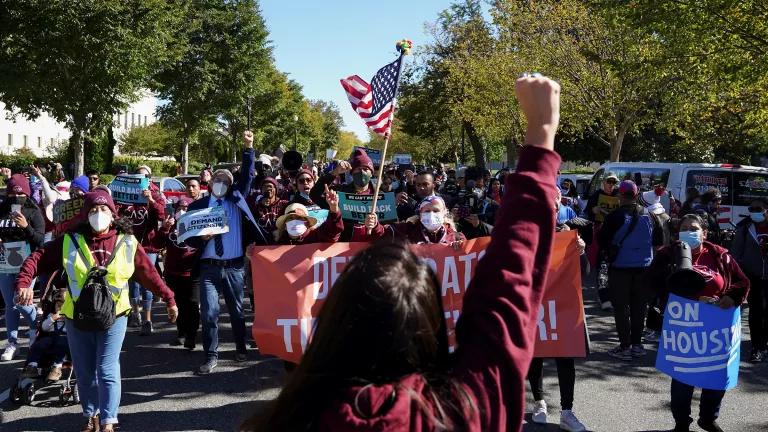NRDC Announces Support for California’s Proposition 15

With the Schools and Communities First initiative, voters have an opportunity to provide more stable funding to cities and counties, K–12 schools, and community colleges.
It’s almost as if wealthy corporations in California get their property tax bills from a time machine. Because of 1978’s Proposition 13, they are paying rates based on what their property was worth in the 1970s as opposed to its current, far higher value. That lets them evade billions of dollars in taxes to state and local governments, schools, and community colleges.
This year, California voters have an opportunity to reform and close many of the loopholes in the commercial property provisions of Prop. 13 by voting “yes” on the Schools and Communities First initiative (Proposition 15) on the November ballot.
Most of the funding generated by Prop. 15 would come from the state’s most expensive business properties. The initiative would require commercial properties with more than $3 million in holdings to be reassessed. Many valuable commercial properties haven't been reassessed in decades.
Instead of paying taxes based on the purchase price of a property bought years ago, corporations would pay taxes based on the current value of their property. The change could generate up to $12 billion in new revenues every year.
Moving forward, assessments would be based on market value rather than having increases capped at 2 percent.
Since 1978, California localities and schools have been forced to rely mostly on revenue other than property taxes—revenue sources like sales taxes that are generally more volatile and likely to plummet along with the economy during bad times, like the current pandemic-related recession.
NRDC supports the passage of this initiative, which would provide more stable funding for K–12 schools and community colleges, giving the state more flexibility during economic downturns and the ability to increase funding for environmental protection and enforcement, health care, and other core priorities.
Prop. 15 would also establish more stable funding for cities and counties, enabling them to prioritize sustainable development and better protect and restore their local natural resources. A fairer property tax system will encourage property owners to put their land to its highest and best use, helping to curb the urban sprawl that leads to traffic jams and air pollution.
The oil industry has used Prop. 13 loopholes to evade tens of millions of dollars in property taxes. Companies like Chevron, Exxon, Phillips 66, Shell, and Tosco are paying taxes based on assessments taken prior to 2000. Prop. 15 would end this hidden subsidy to dirty energy.
For years, loopholes have limited investments that California can make in a sustainable future. Prop. 15 removes these artificial constraints while protecting small businesses and homeowners.
NRDC stands with Sierra Club California, Communities for a Better Environment, BlueGreen Alliance, Asian Pacific Environmental Network, California League of Conservation Voters, teachers, public health organizations, and countless others in wholeheartedly endorsing and urging a “yes” vote on Prop. 15.



